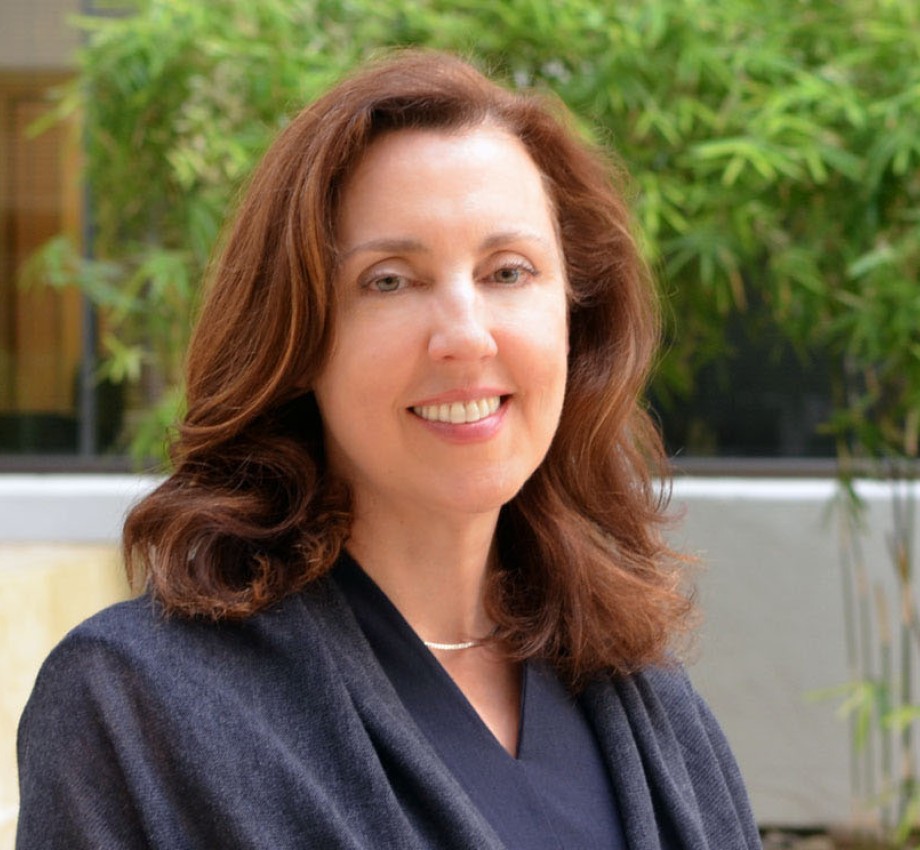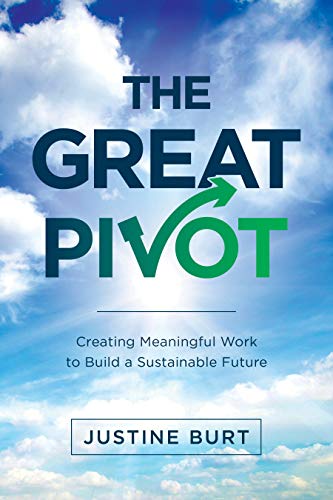Finding Solutions to the Climate Crisis Through Meaningful Job Creation


There is a crisis in America’s workforce today as more and more jobs are lost to automation and potential workers are opting out of the labor force. Add in the global climate crisis, and the future can look a bit grim.
Sustainability consultant and instructor Justine Burt, however, posits that we can work through both of those ongoing problems by refocusing our economy using sustainability as an organizing principle in her new book, The Great Pivot: Creating Meaningful Work to Build a Sustainable Future:
BASIC ELEMENTS OF THE GREAT PIVOT
- Address the crisis in the world of work.
- Scale up the building of a sustainable future.
- Create meaningful jobs that people so desire.
- Generate more sustainability projects in which the financial sector can invest.
Creating a Career in Conservation
Justine had an epiphany years ago at a publishing job: She realized that the reams of paper she thought she had been recycling were instead being tossed into the trash.
Appalled at the waste, she researched the ins and outs of recycling. She led basic recycling reforms at her job, and thought, “This makes me want to get up in the morning!”
After completing a master's program in environmental policy at Tufts University, Justine established herself in a career as a sustainability manager. She founded Appraccel, which helps businesses implement operational efficiency projects. In addition to board and volunteer work, she also teaches in our Sustainability Department .
Finding What Needs to Be Done, Who Can Do It
It was the combination of her career and her teaching experience that led to Justine's desire to write this book.
Her consultancy work gives her insight into the organizational metabolism that can be refocused toward reducing costs through lessening waste, a reduction that above all offers operational savings but also can result in greater employee engagement and the opportunity for green branding.
The Current Crisis in Work
In some ways, Justine sees the crisis in the world of work as an opportunity. But she doesn’t sugarcoat the problems facing Americans who want jobs that matter and that pay a living wage.
While unemployment is at historic lows, Justine points out early in The Great Pivot that those optimistic numbers fail to account for the decline in the labor-force participation rate and those who are marginally employed in what is sometimes referred to as the gig economy.
Factor in the prospect of reduced employment from further outsourcing and automation, and it’s clear that meaningful job creation must be an urgent priority for our society.
Putting Practical Solutions Out There
Seeing the problem, Justine was determined to find some answers, and thus began researching and writing The Great Pivot. In this work, she delves deeply into the solutions that are available today, with the knowledge and interest that we already possess. She presents 30 projects—along with their proofs of concept—that can create millions of jobs that are meaningful and will build a sustainable future.
As an example, Justine outlines the potential of zero-net-energy retrofitting and details the case of a Silicon Valley landlord who installed solar, energy-efficient technologies and electric vehicle charging at an 82,000-square-foot light manufacturing facility space that zeroed out their energy bill.
The building owner did raise the rent to help cover the capital costs of the renovation, but the business inhabiting the building saved even more in monthly energy bills, so both parties found success in the process. And with the ongoing decrease in energy usage, the planet benefits, as well.
Case studies such as this make The Great Pivot an inspirational read, a necessary first step in tackling what can seem at times to be an insurmountable task. And while Justine has found great inspiration from previous thinkers and sustainability strategists such as legendary environmental activist Joanna Macy, this new work contributes a practical and jobs-based spark to the climate and sustainability conversation.
As a complement to this real-world sustainability work, Justine has also been teaching our Managing Sustainable Change in an Organization. In this class, Justine passes along what she’s mastered in her career as a sustainability manager and consultant to help her students learn to implement sustainability projects within existing corporate cultures and processes.
She keeps in touch with many of her former students and sees their desire to create a sustainable future.
But Justine wants to reach even more people. In her words, she wants “charismatic people with great communication skills, as well as strong technical skills” to help create meaningful and sustainable jobs and companies.
Discover your own path to meaningful and sustainable work with UC Berkeley Extension’s Advanced Program in Sustainable Management.